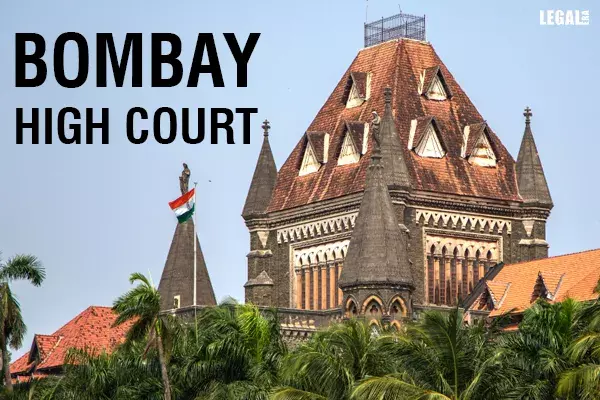Bombay High Court: Use of Expression ‘Benefit of Doubt’ in Judgment Does not Deprive Employee from Claiming Acquittal was ‘Honourable’
The Bombay High Court while adjudicating a petition filed under Article 227 of the Constitution of India which assailed;

Bombay High Court: Use of Expression ‘Benefit of Doubt’ in Judgment Does not Deprive Employee from Claiming Acquittal was ‘Honourable’
The Bombay High Court while adjudicating a petition filed under Article 227 of the Constitution of India which assailed the legality, propriety and correctness of the judgment passed by the learned Member, Industrial Court, observed that mere use of expression ‘benefit of doubt’ used in a judgment does not deprive the employee from claiming that the acquittal was ‘honorable’ or ‘clean.’
The single judge Justice NJ Jamadar observed that the reasoning in the judgement must be seen in its entirety to determine the nature of the acquittal. The Court directed the suspension period of an employee who was suspended due to bribery allegations, to be treated as period on duty.
The factual matrix of the case is that in July 1978, the petitioner- Eknath Shankar Kamble, was appointed as a Tracer with the Zilla Parishad, Sangli. In 2001, while being posted at Panchayat Samiti, Jat, he was arrested by the Anti-Corruption Bureau with allegation of demanding and taking bribe of Rs. 500/-. He was accused of taking the bribe for forwarding to the Zilla Parishad, the complainant’s proposal for enhancement in rent of the premises the Zilla Parishad had taken on lease to run a school. He was suspended from 18 October, 2001.
During the pendency of his trial, the Zilla Parishad Sangli in 2005 compulsorily retired him with effect from 15 January, 2006. He was acquitted in April 2009 and approached the Sangli Zilla Parishad for full retiral benefits. The Zilla Parishad in 2010 decided to treat the suspension period from 18 October, 2001 to 16 January, 2006 as suspension period. Kamble’s appeal against this decision was dismissed by the appellate authority.
Thereafter, the petitioner approached the industrial court with a complaint of unfair labor practice against this decision. The Industrial Court dismissed his complaint in 2017 reasoning that Kamble was acquitted only due to benefit of doubt and it was not a case of honorable acquittal or complete exoneration.
Thus, Kamble filed the present writ petition challenging this decision.
The High Court was of the considered view that the competent authority can decide to either initiate disciplinary proceedings or treat the suspension period as period on duty depending upon the nature of the acquittal of a person. This depends on whether the acquittal is clean and honorable and the employee has been completely exonerated or whether the employee was acquitted on account of technical or procedural flaws in the prosecution’s case, opined the High Court.
It was further noted by the Court that there was a technical flaw in the prosecution’s case as the officer who was the formal complainant himself entered into the investigation. Due to this technical reason, trial judge extended the benefit of doubt to Kamble.
However, the Court pointed out the fact that the trial judge had found Kamble was not entrusted with the task of forwarding proposal to the Zilla Parishad, and the head of the school had not referred the complainant to Kamble.
The trial judge further found that the evidence of the complainant and the trap witness regarding the demand of bribe was untrustworthy and the acceptance of bribe and recovery of tainted currency notes was not proved by the prosecution beyond doubt.
Therefore, the trial judge held that the prosecution had failed to prove guilt of the accused on all ingredients such as opportunity, demand, and acceptance.
Consequently, the Court observed that the, “Use of expression ‘not proved beyond reasonable doubt’ cannot be the sole barometer. The said expression also denotes the standard of proof on the touchstone of which the evidence is appraised. It may not, therefore, be justifiable to hold that the acquittal can in no case be honorable or clean where the criminal court uses the expression not proved beyond reasonable doubt’ or that the accused is entitled to benefit of doubt.”
It was further brought on record before the Court that no independent disciplinary proceeding was initiated against Kamble and he was compulsory retired by invoking the power to retire an employee in public interest.
Thus, the judge reckoned that the retirement in public interest was not wholly unconnected with the circumstances which led to Kamble’s suspension, even if the retirement was not by the way of penalty.
“Retirement in public interest cannot be said to be wholly unconnected with the circumstances which led to the suspension of the Petitioner. It is true, retirement in public interest was not by way of penalty. But the totality of the circumstances cannot be lost sight of. The Petitioner came to be acquitted from the prosecution. No disciplinary action was initiated against the Petitioner. Yet the Petitioner stood retired in public interest three years prior to the normal superannuation,” the Court remarked.
Therefore, the Court held that the Industrial Court had committed an error in dismissing the complaint.
Thus, the petitioner was entitled to have his suspension period treated as period of duty for the purpose of determining pension.
The Court concluded that the period of suspension deserved to be treated as the period spend on duty for the purpose of retiral benefits. It clarified that Kamble shall not be entitled to pay and allowances for the said period, apart from the subsistence allowance which has already been paid to him.

